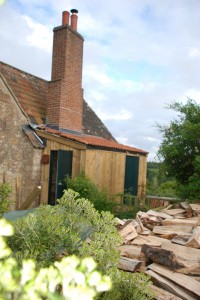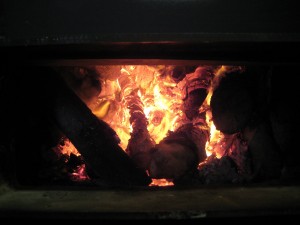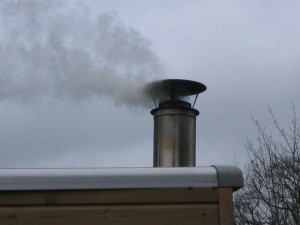Domestic Renewable Heat Incentive – the woodfuel perspective
The long awaited domestic part of the Renewable Heat Incentive (RHI) will be launched in the Spring of 2014. This is welcome news and opens up opportunities for home owners to get in on the RHI act.
The full domestic RHI policy statement is available on the Department of Energy and Climate Change (DECC) website. However, for those wanting a quick summary of the key facts about the scheme there is a very useful four page blog based on frequently asked questions on the Yougen website. Search the blog for “Domestic renewable heat incentive: your questions answered”.
By contrast our blog is mainly aimed at householders interested in biomass and the possibility of using their own wood fuel or supplying to others.
Key facts of the scheme:
- The tariff rate for biomass systems is 12.2 pence per kilowatt hour (p/kWh)
- Only single domestic dwellings are eligible
- There is no requirement for dwellings to be off the gas grid
- The tariff is paid for a period of seven years from the date that a project is accredited
- All installations must be certified under the Microgeneration Certification Scheme (MCS).
- The scheme covers any biomass boiler installed after 15 July 2009
- Applicants that have received a Renewable Heat Premium Payment (RHPP) will have their rebate reduced by the value of the RHPP voucher
- In most instances the heat generated by a biomass boiler will be ‘deemed’ – i.e. estimated based on the buildings Energy Performance Certificate.
- All applicants (other than self-builders) must show evidence that they have had a Green Deal Assessment (GDA) and that their dwelling has minimum levels of loft and cavity wall insulation (where appropriate)
- Applicants can include owner occupiers, private landlords, Registered Social Landlords (RSLs) and third-party owners of heating systems and self- builders
- A biomass system installed before 31 March 2014 is eligible for a RHPP worth £2,000
- It is also possible to get support through the Green Deal, which allows homeowners to pay off a loan through the savings they achieve in their energy bills.
Biomass systems
The domestic RHI covers:
- Biomass boilers (fuelled by wood pellet, wood chip or logs)
- Biomass pellet stoves with back boilers
Condensing biomass boilers will not initially be eligible for the domestic RHI but this may change following further evaluation of this technology.
The fact that biomass installation need to be MCS accredited effectively limits the domestic RHI scheme to systems under 45 kW. This does leave a hole between the domestic and non-domestic schemes. See our RHI consultation response for details.
Let’s imagine a medium sized farmhouse with a deemed heat load of 60,000 kWh per year (equivalent to around 5,700 litres of oil). Such a property might need a 30- 40 kW boiler. This would receive a rebate of 60,000 x 0.122 = £7,830 per year. Over the 7 years of the scheme the farmer would receive £51,240. However, they would have to take into account the upfront capital costs, ongoing servicing costs and additional labour required to load fuel and remove ash. If oil or LPG are the fuels replaced then there should be some additional savings as woodfuel is generally cheaper. The best savings would be made by those growing their own fuel.
Sustainability criteria
Applicants to the scheme will have to demonstrate that there biomass fuel is produced sustainably. DECC have relaxed the necessary sustainability criteria proposed in the consultation. This is good news as woodfuel that is produced from the applicants own land will automatically be considered as being sustainable. This includes existing woodland and energy crops (miscanthus and short rotation coppice). Initially, such self-suppliers will not be able to supply other biomass installations. However, DECC are considering a ‘proportionate approach’ so that small producers can supply any surplus fuel to their local area.
Those applicants that can’t supply their own woodfuel will have to source it from an approved supplier list that will be rolled out before the scheme launches. In order to be included on the list suppliers are likely to have to meet the following criteria:
- Be able to supply woodfuel which complies with the greenhouse gas (GHG) lifecycle emissions target of achieving 60% GHG savings against the EU fossil fuel heat average (assuming a boiler efficiency of 70%)
- Be able to report their sustainability performance depending on the type of woodfuel:
- Woodfuel from forests, woodlands and tree surgery: sustainability criteria set out in the UK public procurement policy on wood and wood products
- Perennial energy crops: sustainability criteria required by the Energy Crops Scheme for
England or successor schemes once ECS 2 closes. - Other types of solid biomass: the sustainability criteria set under the Renewable Energy Directive
Air quality requirements
The scheme also set new limits on the maximum permitted emissions from various pollutants. Eligible biomass systems must not exceed:
- 30g per gigajoule (g/GJ) of particulate matter (PM) or dust
- 150g/GJ for oxides of nitrogen NOx.
Most MCS accredited boilers can achieve these limits with wood pellets , wood chips and logs. Boilers using miscanthus chip or pellets as fuel may need a ceramic filter in order to meet the PM requirements. The good news is that projects installed after 15 July 2009 and before scheme starts next year will not need to meet these requirements.
Do you want help?
If you like the sound of all this but still feel daunted and would like help at every step of the way Crops for Energy can help! Our turn key management services include:
- Initial feasibility study looking at boiler size, woodfuel requirement, RHI rebate etc
- Production of a project brief and requesting quotes from installers
- Help in understanding the returned quotes
- Negotiating a timetable with the chosen installer
- Helping you understand your woodfuel self supply capability
- Production of a woodfuel tender and negotiation of an interim contract
- Applying for RHI accreditation through OFGEM
If you would like to get paid to keep warm give Crops for Energy a call on 0117 908 9057 or email us.


